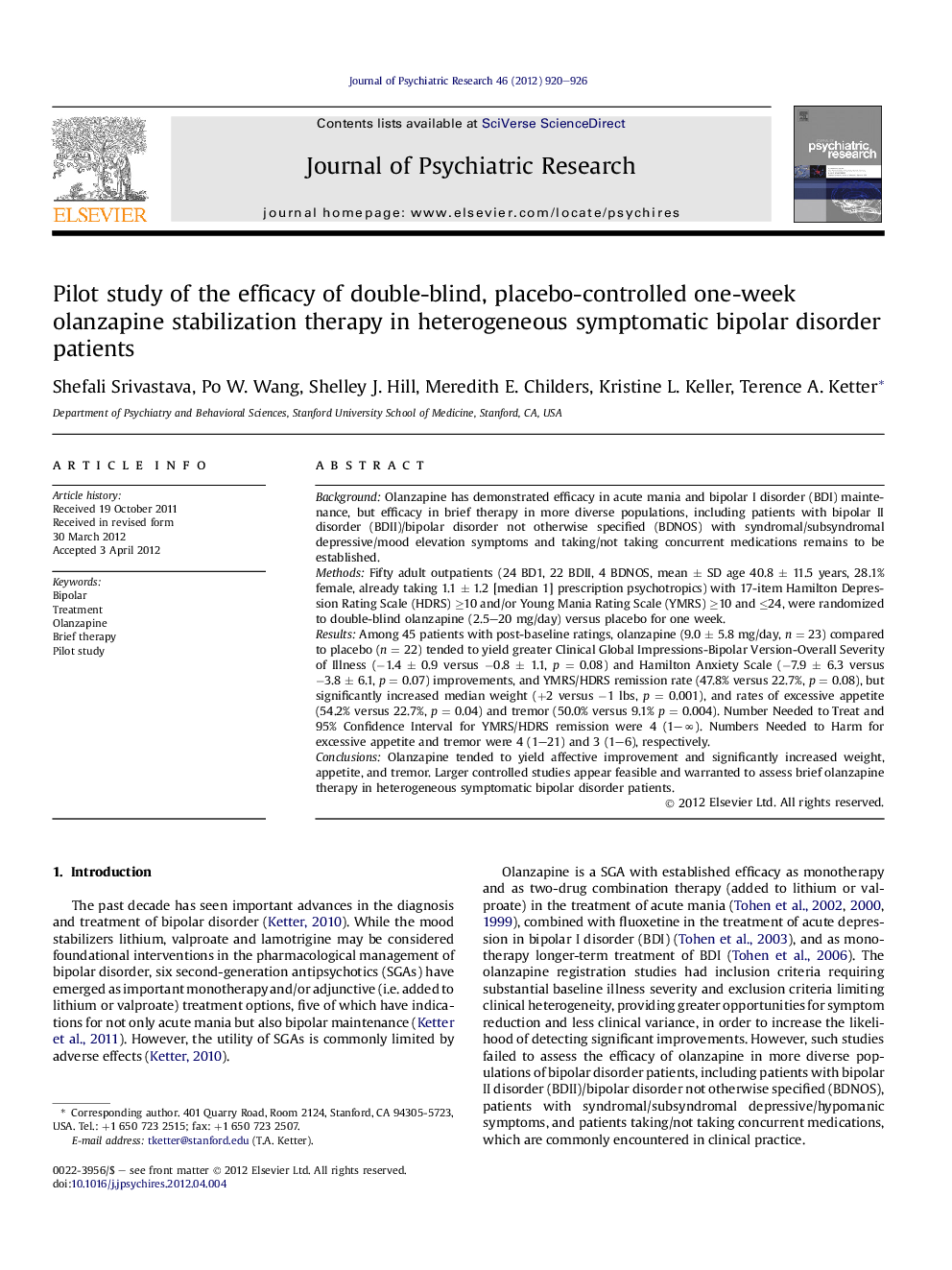| Article ID | Journal | Published Year | Pages | File Type |
|---|---|---|---|---|
| 326542 | Journal of Psychiatric Research | 2012 | 7 Pages |
BackgroundOlanzapine has demonstrated efficacy in acute mania and bipolar I disorder (BDI) maintenance, but efficacy in brief therapy in more diverse populations, including patients with bipolar II disorder (BDII)/bipolar disorder not otherwise specified (BDNOS) with syndromal/subsyndromal depressive/mood elevation symptoms and taking/not taking concurrent medications remains to be established.MethodsFifty adult outpatients (24 BD1, 22 BDII, 4 BDNOS, mean ± SD age 40.8 ± 11.5 years, 28.1% female, already taking 1.1 ± 1.2 [median 1] prescription psychotropics) with 17-item Hamilton Depression Rating Scale (HDRS) ≥10 and/or Young Mania Rating Scale (YMRS) ≥10 and ≤24, were randomized to double-blind olanzapine (2.5–20 mg/day) versus placebo for one week.ResultsAmong 45 patients with post-baseline ratings, olanzapine (9.0 ± 5.8 mg/day, n = 23) compared to placebo (n = 22) tended to yield greater Clinical Global Impressions-Bipolar Version-Overall Severity of Illness (−1.4 ± 0.9 versus −0.8 ± 1.1, p = 0.08) and Hamilton Anxiety Scale (−7.9 ± 6.3 versus −3.8 ± 6.1, p = 0.07) improvements, and YMRS/HDRS remission rate (47.8% versus 22.7%, p = 0.08), but significantly increased median weight (+2 versus −1 lbs, p = 0.001), and rates of excessive appetite (54.2% versus 22.7%, p = 0.04) and tremor (50.0% versus 9.1% p = 0.004). Number Needed to Treat and 95% Confidence Interval for YMRS/HDRS remission were 4 (1–∞). Numbers Needed to Harm for excessive appetite and tremor were 4 (1–21) and 3 (1–6), respectively.ConclusionsOlanzapine tended to yield affective improvement and significantly increased weight, appetite, and tremor. Larger controlled studies appear feasible and warranted to assess brief olanzapine therapy in heterogeneous symptomatic bipolar disorder patients.
